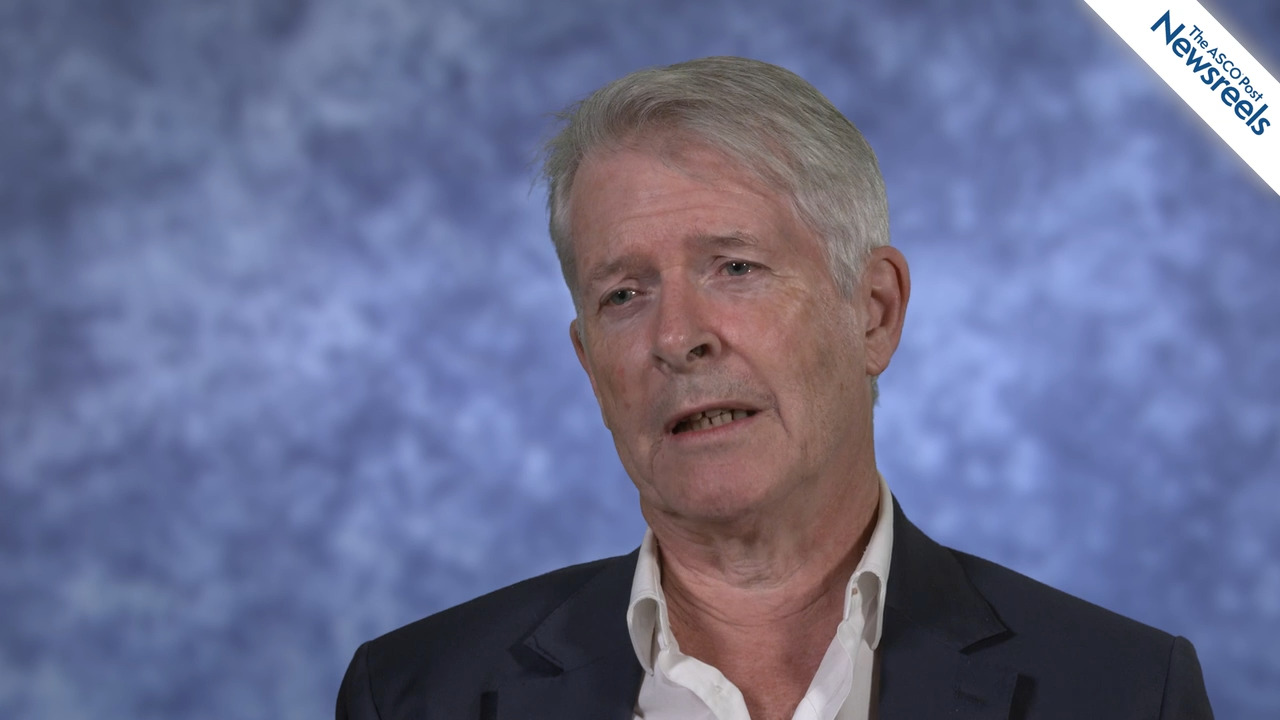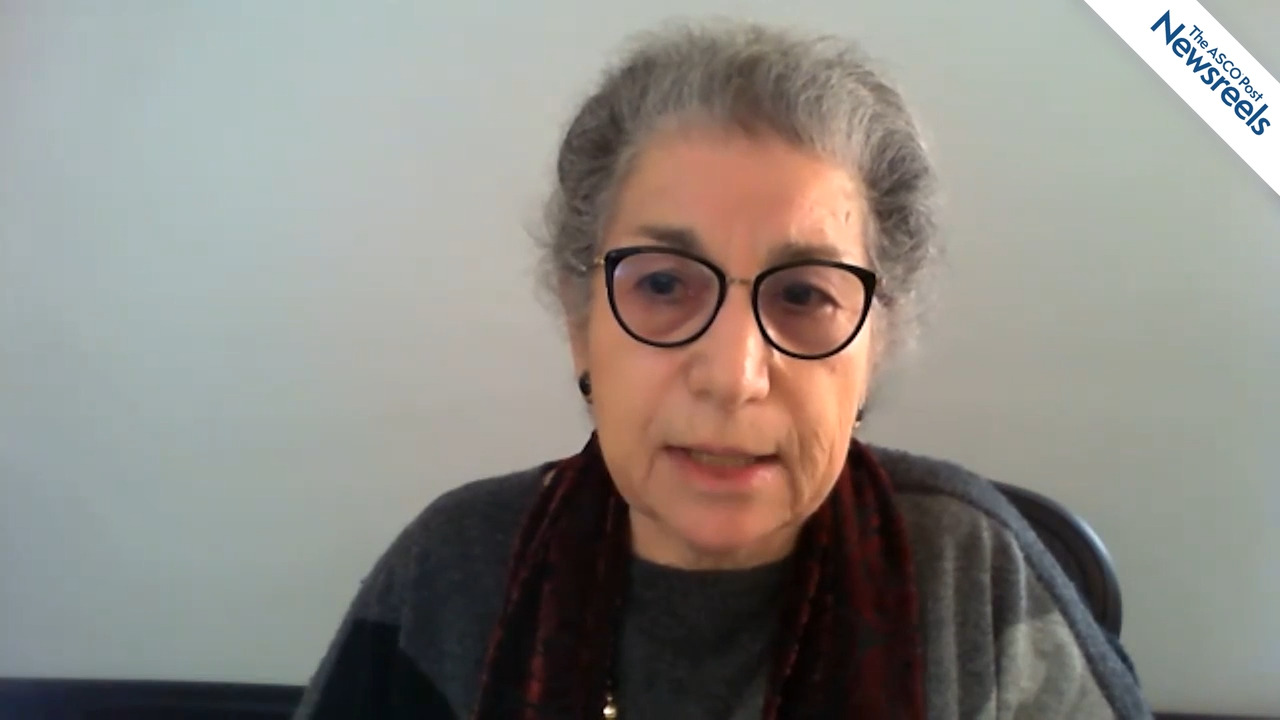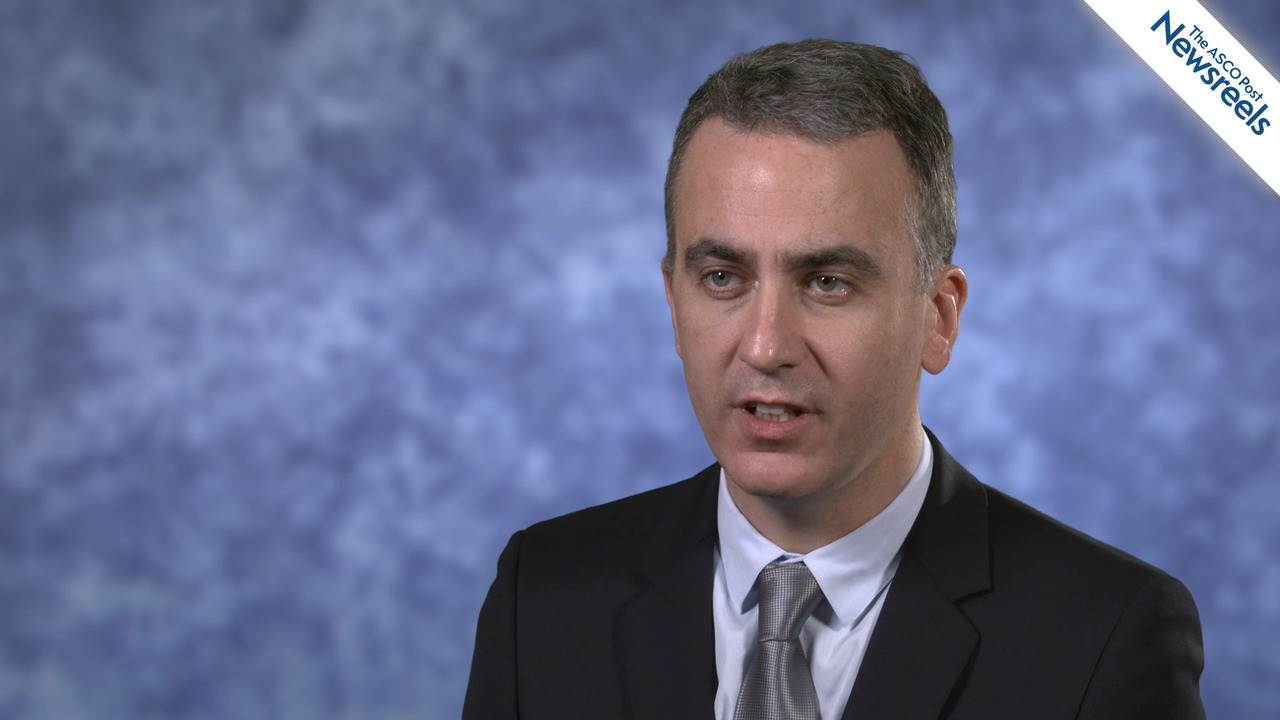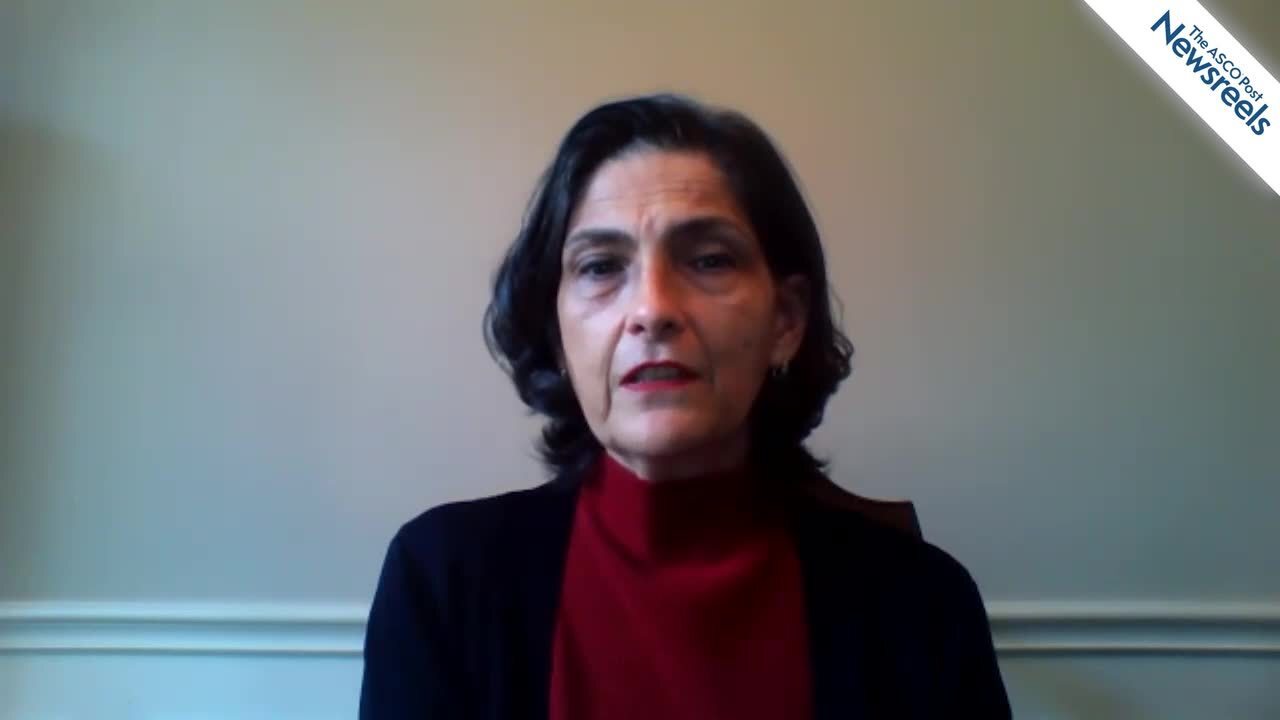Meredith M. Regan, ScD, on Early Breast Cancer: Updated Results From the TEXT and SOFT Trials
2021 San Antonio Breast Cancer Symposium
Meredith M. Regan, ScD, of Dana-Farber Cancer Institute, discusses findings that point to the potential benefits of using adjuvant exemestane plus ovarian function suppression (OFS) to treat premenopausal women with hormone receptor–positive early breast cancer. This conclusion came after 13 years of median follow-up on the TEXT and SOFT trials, during which this regimen was compared with tamoxifen and OFS (Abstract GS2-05).
The ASCO Post Staff
Charles Coombes, MD, PhD, of Imperial College, London, discusses study results on samuraciclib, a first-in-class, oral, selective inhibitor of CDK7, in combination with fulvestrant in patients with advanced hormone receptor–positive HER2-negative breast cancer. The combination of agents has demonstrated evidence of anti-tumor activity for patients who have progressed on their prior CDK4/6 inhibitor treatment (Abstract GS3-10).
The ASCO Post Staff
Patricia A. Ganz, MD, of the University of California, Los Angeles, discusses quality-of-life results from the phase III OlympiA study of adjuvant olaparib after (neo)adjuvant chemotherapy in patients with germline BRCA1/2 mutations and high-risk HER2-negative early breast cancer (Abstract GS4-09).
The ASCO Post Staff
Sara A. Hurvitz, MD, of the University of California, Los Angeles Jonsson Comprehensive Cancer Center, discusses phase III findings from the DESTINY-Breast03 trial, which compared ado-trastuzumab deruxtecan (T-DXd) with standard-of-care trastuzumab emtansine (T-DM1) in patients with HER2-positive metastatic breast cancer. T-DXd showed superior progression-free survival across subgroups of patients previously treated with trastuzumab and a taxane, including those with brain metastases (Abstract GS3-01).
The ASCO Post Staff
François-Clément Bidard, MD, PhD, of the Institut Curie, discusses phase III findings of the PADA-1 study, which showed that optimizing endocrine therapy after detecting the ESR1 mutation in patients with hormone receptor–positive, HER2-negative metastatic breast cancer may double their median progression-free survival (Abstract GS3-05).
The ASCO Post Staff
Banu Arun, MD, of The University of Texas MD Anderson Cancer Center, discusses a session she moderated that included discussion of how exercise and diet may reduce the risk of breast cancer, and emerging non-endocrine treatments that may help prevent the disease.





